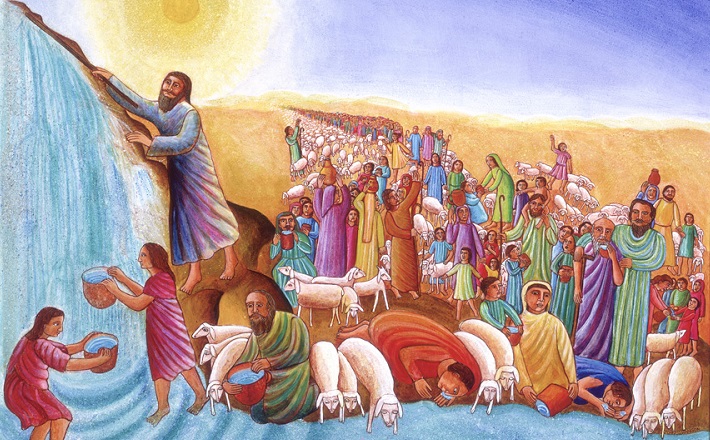Commentary on Proverbs 8:1-11, 22-36
Week 2 (July 19, 2015)
Preaching text: Proverbs 8:1-11, 22-36
The text this second week moves from considering the fear of the LORD to describing the figure of Woman Wisdom. This personification of wisdom in Proverbs 8 serves as the counterpoint to the “strange woman” of the previous chapter. Like the strange woman, Woman Wisdom stands in public spaces calling out to passersby; but unlike the strange woman, Woman Wisdom points the way to life: “Whoever finds me finds life and obtains favor from the LORD; but those who miss me injure themselves; all who hate me love death” (Proverbs 8:35-36). The world, for Wisdom teachers, is largely black and white. There is the way of death and the way of life. The choice is clear: Choose life.
The two different ways that a person might choose are personified by female figures: the strange woman and Woman Wisdom. Though some today may find such personification troubling, it is good to remember the culture out of which it comes: In ancient Israel, as in the wider ancient Near East, Wisdom literature was addressed to young men. And for young men, the literary use of female figures was a compelling way to talk about desire.
One interesting thing to note is that Woman Wisdom, like the strange woman, stands in public places (the crossroads, the city gates), where prostitutes (or prophets) call out. One could argue, then, that desire, in and of itself, is not bad. But what Proverbs teaches us is that desire must be rightly disciplined and focused; that is, not on material gain or on fleeting pleasure but on wisdom: “Take my instruction instead of silver, and knowledge rather than choice gold; for wisdom is better than jewels, and all that you may desire cannot compare with her” (Proverbs 8:10-11).
The latter part of Proverbs 8 depicts Wisdom as the first of God’s creations, born before the world was created (Proverbs 8:25). Woman Wisdom here is either a “master worker” or a “child” (the Hebrew of verse 30 can be translated either way). In either case, it is through Wisdom that God creates the world with a certain order (verses 28-29) and delights in it. Wisdom teaches us to do the same, delighting in the beauty and order of the created world and seeking to live well in it.


July 19, 2015